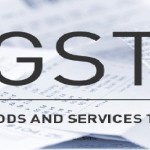The Income Tax (IT) department maintains and ensures tax compliance by every working individual, entity, and institution. It can identify and prevent financial thefts, evasions, and other financial offenses. Of late, the department has intensified its efforts to combat false or inaccurate income tax returns (ITRs) among salaried individuals who submit fabricated rent receipts in the names of relatives, falsified donations, exaggerated claims linked to loans, and other shady methods of tax evasion.
The department has adopted a new approach, employing AI software to uncover these falsehoods.
Table of contents [Show]
Salaried professionals served notices
Many salaried professionals have been served notices demanding explanations and evidence for these questionable claims, including house rent allowance under section 10 (13A), deduction for interest on home loans, and allowances under section 10 (14) for engaging a helper to fulfill official duties.
Specific identification numbers
The revenue department also turned its focus to claims made regarding charity and political donations in recent times. Specific identification numbers became mandatory for charitable trusts. Only donations made to trusts with these unique IDs were eligible for Section 80 G deductions starting from FY20 onwards.
AI support
Leveraging artificial intelligence, the IT Department has identified individuals whose donation-to-income ratio appears disproportionate. This advanced technology assists in identifying irregularities. The computerized record-keeping system allows the revenue department to cross-reference tax returns submitted by charities or political entities with individual return details, thereby verifying the legitimacy of donation claims.
Big data analysis
The IT department is employing data analytics and deeper data mining to scrutinize influencers' social media accounts to detect disparities between their income and ITRs. This sophisticated means also investigates cryptocurrency exchange.
Demanding details of the professionals
In addition, taxpayers have also been asked by the IT department to provide complete details of the chartered accountant, lawyer, or IT professional responsible for preparing and filing their returns.
So far, people with smaller incomes were under the impression that their discrepancies would go unnoticed. Still, with the IT department adopting sophisticated technology, tax evasion will become more difficult.








